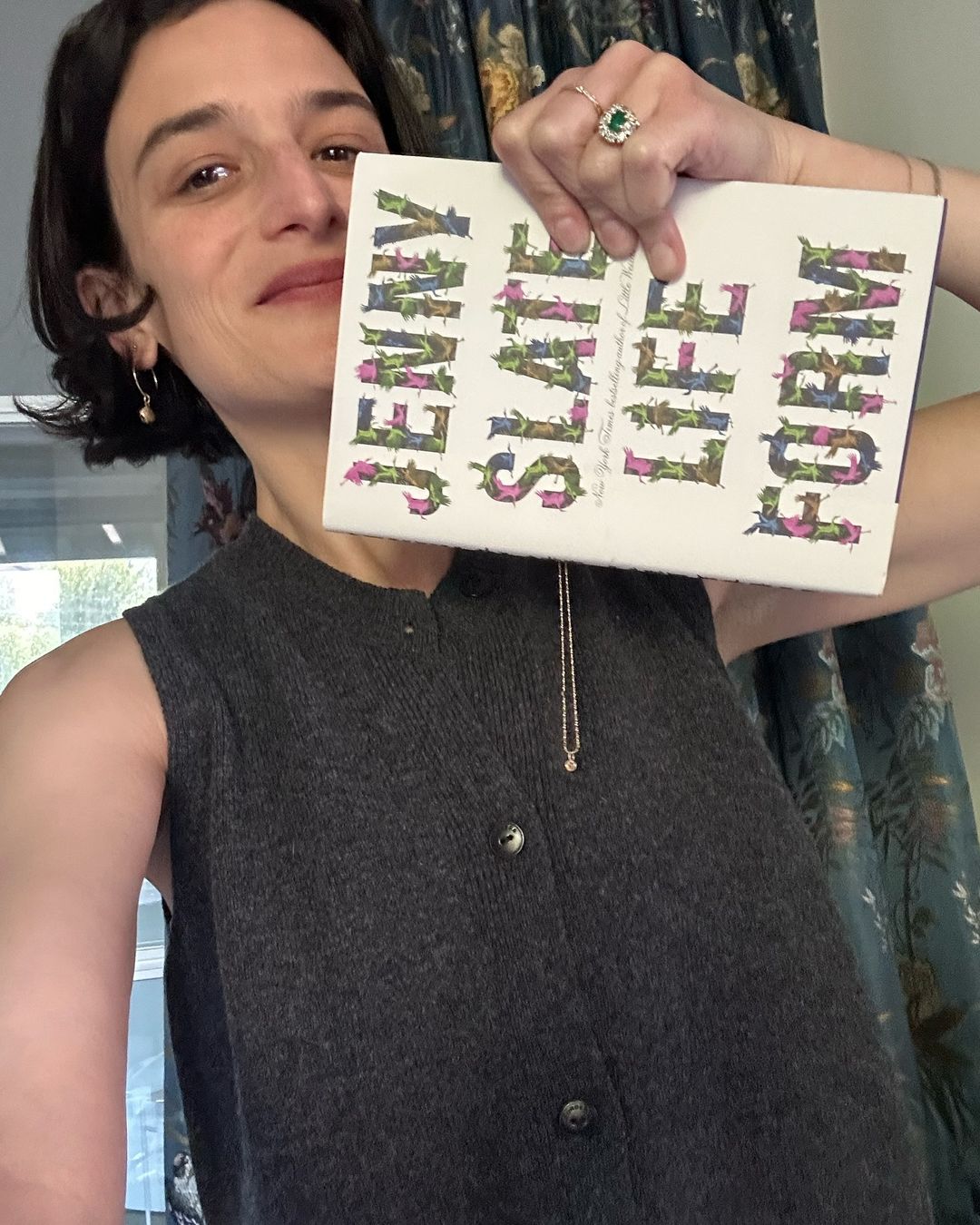Jenny Slate is no stranger to the complexities of life, love, and self-reflection. With her latest essay collection, Lifeform, she opens the door to her experiences of motherhood and the emotional labyrinth that comes with it. Drawing inspiration from her journey of pregnancy and parenting, Slate’s book serves as a powerful testament to the changes that shape our identities.
In a recent interview with The Hollywood Reporter, Slate likened the process of writing Lifeform to “standing in the rubble of her life,” sending out messages to the world that she still exists and evolves. This sentiment echoes her previous work, Little Weirds, which she penned after her divorce as a way to navigate her feelings of solitude and self-discovery. “I was trying to become a new version of an adult,” Slate recalls. The fragments of her past life became the foundation for her first book, reflecting her struggles and revelations.
Since the release of Little Weirds in 2019, life has taken a joyful turn for Slate. She found love, got married, and embraced motherhood. These milestones have enriched her writing experience, yet they also presented challenges. Slate admits she grappled with the creative process this time around, often revisiting her thoughts before they crystallized into the chapters of Lifeform. One particularly poignant essay discusses a stork visualization technique she used during pregnancy, revealing the depth of her emotional and psychological landscape as a mother.
The emotional stakes are high for Slate, who candidly acknowledges the weight of public perception. “I’m feeling a lot of happiness that I like it. But that doesn’t mean that if someone’s like, ‘Ew, what a gross, stupid book,’ that I won’t feel bad,” she confesses. This tension between personal satisfaction and external validation is a familiar struggle for many artists, and Slate is no exception.

Personal and Creative Boundaries
Slate adopts a thoughtful approach when it comes to writing about her personal life and the people in it. She emphasizes the importance of prioritizing personal relationships over artistic expression, stating, “I don’t feel any interest in making anybody feel uncomfortable.” Her commitment to honesty does not come at the expense of her loved ones; she strives to navigate the delicate balance between authenticity and respect for their feelings.
Slate’s reflections on vulnerability in comedy resonate deeply. She notes that audiences often misinterpret heartfelt moments as weaknesses, particularly when presented by female comedians. “It feels like a knee-jerk misogynist reaction to vulnerability,” she remarks, highlighting the societal double standards that persist in the entertainment industry. Yet, she remains steadfast in her belief that both her writing and stand-up can convey tenderness alongside humor.
Slate’s perspective on success diverges from conventional metrics like book sales or box office returns. For her, fulfillment lies in the act of creation and the satisfaction of meeting her own standards. “I feel successful when I set out to do something, and when I make the thing I was meant to make,” she asserts. This intrinsic motivation underscores her artistic integrity and dedication to her craft.
However, the weight of criticism can be challenging to bear. Slate recounts a particularly painful encounter in her husband’s general store, where she overheard patrons critiquing her work. The experience was jarring, forcing her to confront her self-doubts head-on. “It was like reading a comment section,” she reflects, underscoring the raw vulnerability that accompanies a public persona.
Reflections on Motherhood and Identity
As Slate contemplates her daughter reading Lifeform in the future, she hopes her child will recognize the complexities of her identity. “I hope that she’ll recognize me,” she shares, emphasizing her desire for transparency and connection. Slate candidly addresses the tension between societal expectations and her identity, often wrestling with the stereotypes accompanying motherhood.
The struggle against gendered clichés is a prominent theme in Slate’s reflections. She articulates the fear of being boxed into outdated roles, questioning her relationship with domesticity and the implications it has on her self-worth. “Am I an unconscious misogynist who is trying to prove my worth to a mean daddy God who wants me to be a nice clean mommy?” she muses. This introspection illustrates her commitment to dismantling ingrained beliefs and challenging the status quo.



